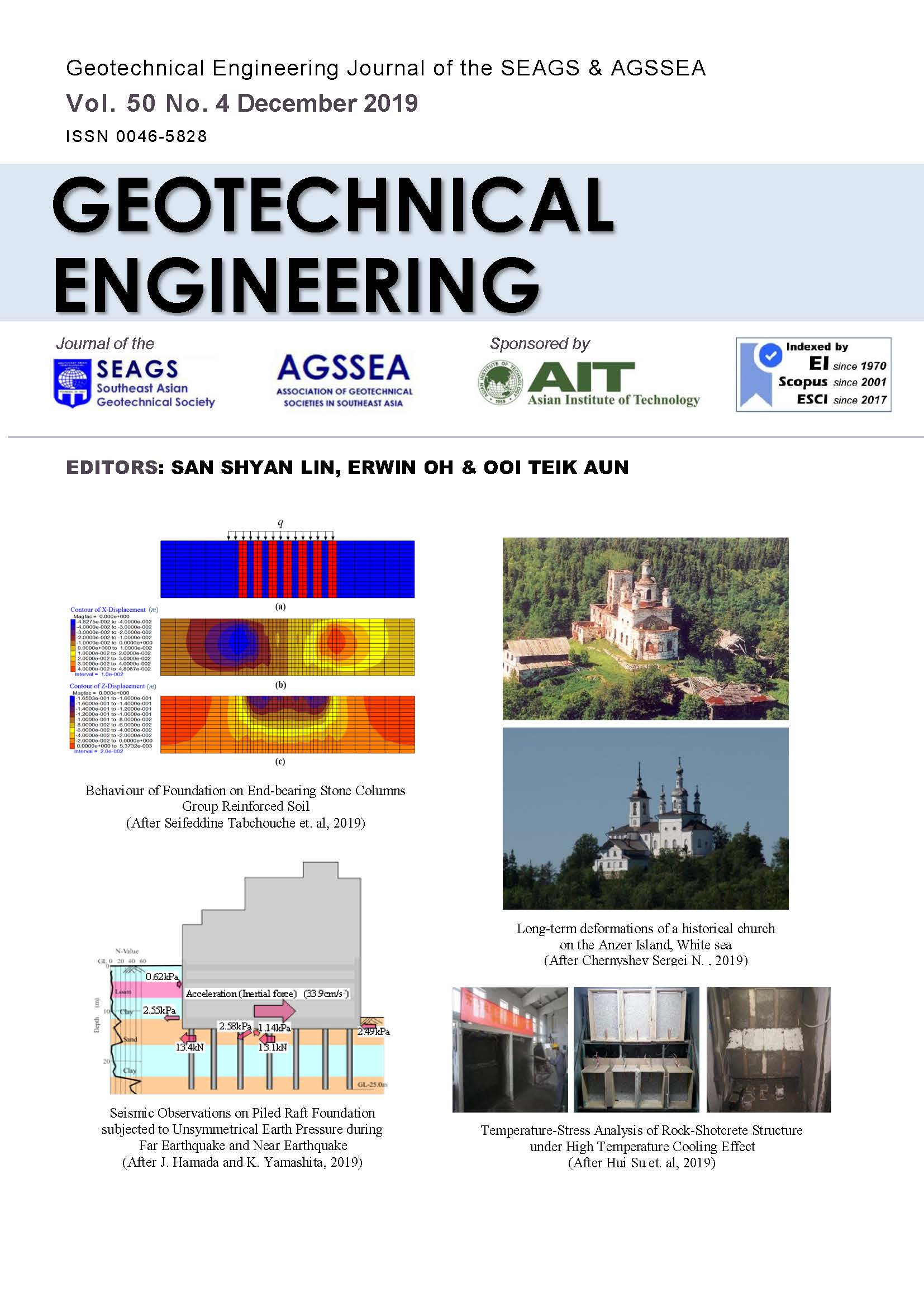Geotechnical Characterization and Behaviour of Tunis Soft Clay
Main Article Content
Abstract
Tunis soft clay being known as one of the most problematic soils has poor mechanical characteristics, high compressibility and exhibits fragile shear strength. This paper considers the geotechnical characterization of Tunis soft clay by compiling results from in situ and laboratory tests. Accordingly, some correlations are suggested. The assessment of observed behaviour of Tunis soft clays in the zone of interchange ramps was investigated. The follow up of ramps behaviour was performed for a period of three months. The evolution of settlement was monitored by rod settlement, hydraulic settlement and multi-points settlement. A plane strain model was built for numerical investigation conducted by Plaxis software to simulate the behaviour of the ramp’s embankment. Hardening Soft Soil Model (HSM) and Soft Soil Model (SSM) were adopted for the soft clay layer. The results showed an agreement between the predictions of the two models of the behaviour of the soft clay. Using measured settlement, the adopted behaviour for Tunis soft clay is justified.
Article Details

This work is licensed under a Creative Commons Attribution-NonCommercial-NoDerivatives 4.0 International License.
Copyright © 2019 Association of Geotechnical Societies in Southeast Asia (AGSSEA) - Southeast Asian Geotechnical Society (SEAGS).


